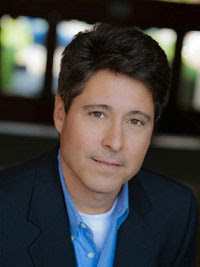Jake Needham, author of The Ambassador's Wife and crime novelist, tweeted me in response to one of my articles about the changes in Amazon's ranking algorithm and what they could mean for writers in Amazon's KDP Select program. What he had to say stunned me. Before we get to that, though, let me give you a bit of background.
Amazon's KDP Select program demands it's authors sell exclusively through Amazon, but it provides authors with perks: your books are included in Amazon's prodigious lending library and you are allowed to offer your books free a maximum of 5 days every 3 months. Every time a book is borrowed and every time a book is downloaded--even when it's free--the book's rank goes up.
Or at least it used to.
It seems the recent changes to Amazon's ranking algorithm mean free downloads now count only a fraction of what they once did, and it's pretty much the same for borrows. Since the rule of thumb is that the higher ranked a book is the better it sells authors are wondering whether Amazon's KDP Select program is still worth the price of exclusivity.
Enter Jake Needham and his tweet. Here's what he wrote (I'm using this with his kind permission):
After a big free promotions (20,000+ copies), paid sales were far lower in June than after same number of free in April.That agrees with what I've heard from a lot of other authors. So, if Jake's experience is representative, should authors abandon Amazon's KDP Select program?
It depends.
It depends on how many books an author would have sold through other retailers such as Barnes & Noble, Smashwords and iBooks, etc.
Here's what Jake said:
I sell thousands of copies of my titles every month for Kindle. So far this month for the Nook? O-n-e. Seriously.Let's put this in perspective. Here are the books Jake has for sale on Amazon (I'm only looking at books available as ebooks):
The Ambassador's Wife
Laundry Man
Killing Plato
The Big Mango
World of Trouble
And here are the books he has for sale in the Nook store:
Laundry Man
Killing Plato
The Big Mango
World of Trouble
So the only difference is that The Ambassador's Wife is sold exclusively on Amazon. And of the thousands of copies he's sold this month, only one, one, was sold through Barnes & Noble. Wow. That's amazing.
What should we conclude?
I suppose it depends. On the one hand selling thousands of books a month on Amazon is great. I'd be swinging from the rafters. I'm guessing that even with the drop in revenue after Amazon tinkered with it's ranking algorithm, Jake is doing just fine.
On the other hand, what if Amazon breaks the algorithm? I think that's the fear, that Amazon will, intentionally or otherwise, change their algorithm in such a way that it becomes hostile to independent authors, and if Amazon is the biggest and most lucrative market out there, then we could be in very real trouble.
For what it's worth, my take on this is that it's a good idea to continually be on the look out for other places to sell ebooks, places such as Kobo's Writing Life portal for self published writers, now in beta.
That said, Amazon has shown every sign of being friendly to independent/self published authors. I believe the changes they're making to the ranking algorithm have to do with maximizing book sales and aren't intended to discourage indie authors. On the contrary, they recently featured author Jessica Park and her recently self published book Flat-Out Love on the front page of Amazon.
While there may be turbulence ahead I don't think Amazon's plane is going to crash anytime soon.
Next week I'll be posting an interview I did with Jake Needham, so stay tuned and keep writing.
Cheers.
Related reading:
- Kobo's Self-Publishing Portal: Report From A Beta Tester
- Amazon's Ranking Algorithm Has Changed: what this means for indie authors
- Amazon's KDP Select: Another Author Shares Her Experience
"Jake Needham's Experience With Amazon's KDP Select Program," copyright© 2012 by Karen Woodward.





















